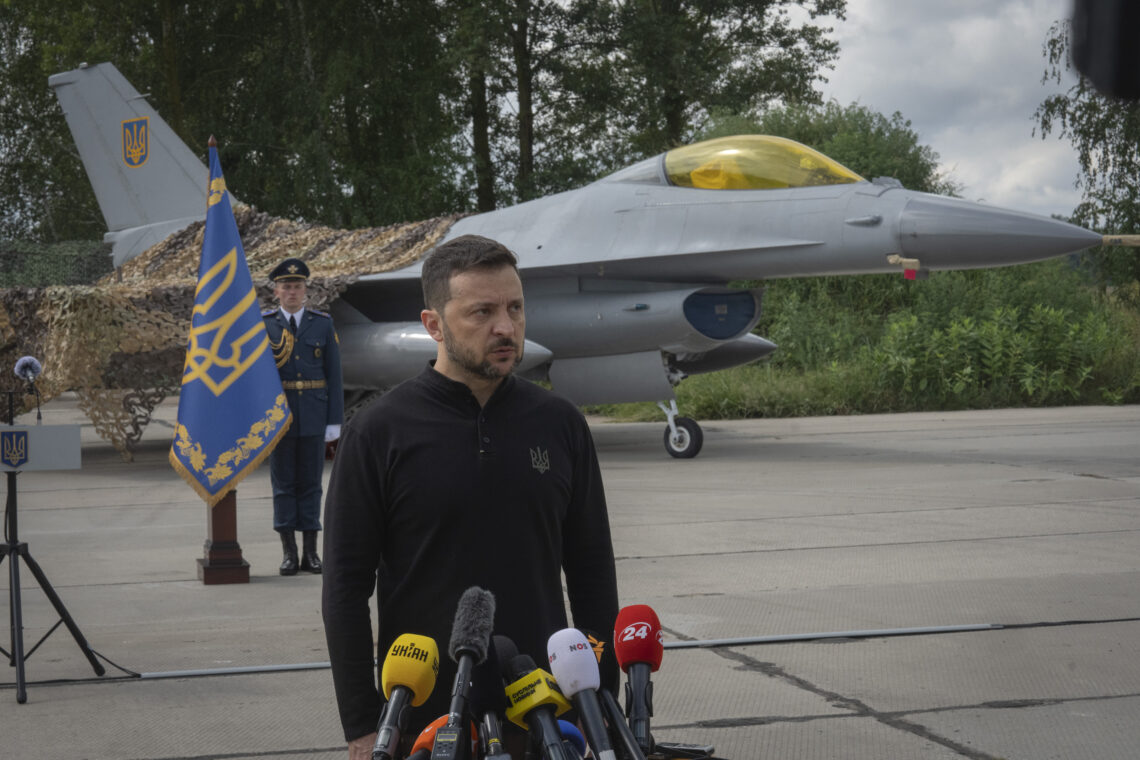Since 24 February 2022, Ukraine has been fighting a desperate defence war against Russia. But its ability to fight is weakened by the widespread corruption in the country, and its frontline soldiers are paying the price.
This is why Ukraine is effectively fighting a war on two fronts, writes The Times.
One example is Tetiana Krupa. As head of a state-run medical centre in western Ukraine, she had a salary of £1,500 a month. But during a raid, police found $5.5 million worth of banknotes stuffed into cupboards and drawers.
In addition, she owns high-value properties that include holiday homes in Austria, Turkey and Spain.
The scale of the alleged corruption and its apparent link to conscientious objection has caused shock and anger in Ukraine.
A sense of resigned resignation is spreading. The Krupa case is just the latest in a series of high-profile corruption scandals that have emerged on a regular basis.
All levels of the civil service are affected, from low-ranking officials like Krupa to ministers and judges.
Mykola Solskyj, former Minister of Agriculture, and Vsevolod Kniaziev, former head of the Supreme Court, are both accused of fraud in the millions. Both deny any wrongdoing.
Before the war, it was well known that Ukraine was one of the most corrupt countries in Europe, which may explain the extremely low level of its economy.
In 2021, Ukraine had a GDP per capita of USD 4,110. In comparison: Belarus $7,490, Russia $11,760, Norway over $90,000.
Cutting corruption was the main theme of the presidential campaign that brought Volodymyr Zelensky to power in 2019. With the outbreak of war, this is more important than ever, as foreign donors may lose interest if large amounts of aid disappear into the pockets of corrupt officials.
Republicans in the US are among those who have pointed to the widespread corruption as an argument for not accepting a support package for Ukraine. Without US support, the war is as good as lost.
Viktor Pavlushchyk heads the National Agency for Combating Corruption (NACP). He believes that the revelations of repeated scandals are not discouraging, but a sign that Ukraine is on the right track in the fight against corruption.
— If we look back ten years ago, who would have ever thought that the head of even a regional court could be accused of bribery, let alone someone as high-ranking as Kniaziev,” he says.
— But now people know that there is no impunity in Ukraine and that anyone who commits bribery will be prosecuted.
Pavlushchyk was appointed to the position earlier this year and the state anti-corruption programme is expected to prevent $4 billion in annual losses to the state as a result of corruption. So far, 1 billion has been collected.
Ukraine wants to become a member of the EU in the long term, which means corruption must be significantly reduced. But this also gives Kiev a motivation to succeed in its endeavours.
This is the opinion of Tetiana Shevchuk of the Anti-Corruption Action Centre, a non-governmental organisation based in Kiev.
— Although we believe there has been good progress, it has not always been as fast, says Shevchuk.
— Especially after the Russian invasion, society reacts very strongly to any kind of injustice, so the tolerance for corruption is very low and the demand for change is high. The authorities know they have no choice but to act.
But for now, the war continues on two fronts.

